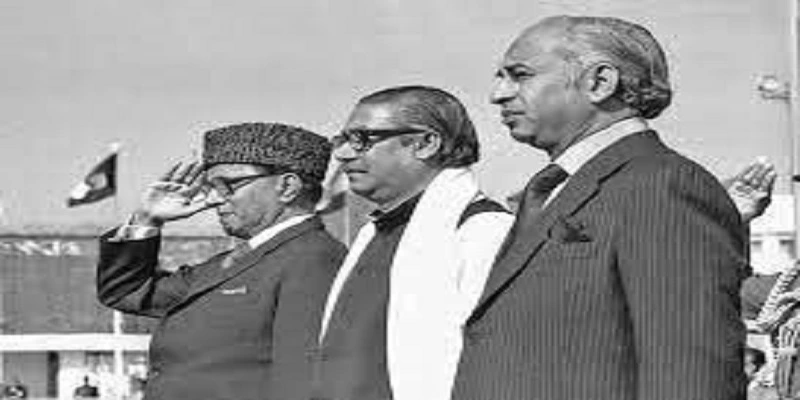Lahore Summit 1974 The Muslim World for Peace and Solidarity
Background.
The Second Islamic Summit Conference held between February 22-24, 1974, in Lahore is, hosted by Pakistan and became called"the Lahore Summit. It was an unusual summit, which was held upon the suggestion of OIC Secretary General Tunku Abdul Rahman. This Second Islamic Summit Conference was scheduled to address concerns about the Middle East situation in the aftermath of the Arab-Israel war of October 1973 and the embargo on oil in place by Arabs. It was attended by heads of state, ministers, and other dignitaries from Muslim nations across the globe. A few of the countries participating included Afghanistan, Algeria, Bahrain, Bangladesh, Chad, Egypt, Gabon, Gambia, Guinea, Guinea- Bissau, Indonesia, Iran, Jordon, Morocco, Saudi Arabia, Kuwait, Lebanon, Libya, Malaysia, Mali, Mauritania, Niger, Oman, Pakistan, Yemen, Qatar, Senegal, Somalia, Sudan, Syria, Tunisia, Turkey, Uganda, United Arab Emirates, Palestine and Iraq. The delegations that visited were welcomed warmly by the citizens of Lahore.
Suggestions and recommendations.
Prime Minister Zulfiqar Ali Bhutto inaugurated the Conference and the following decision-making,
- It was pledged support by the government of Jordon, Syria, Egypt and the Palestinian people in their legitimate struggle to recover their land.
- Palestine issue must be solved, and all states with relationships with Israel were criticized, and the suggestion was made that measures are needed to assert Arab sovereignty over Jerusalem.
- The Islamic Solidarity Fund was established to promote Islamic culture, solidarity, and education.
The outcomes of the Summit.
The success of the Summit boosted the status of Pakistan within its place in the Muslim world. Here are the key results from this Summit: Lahore Summit:
- India realized this after the decommissioning of East Pakistan. Pakistan was not an isolated country. However, it had a lot of allies with many of the wealthiest countries.
- Many Arab and Islamic nations have not recognized Bangladesh as a different country. In the spirit of Islamic unity created through the Islamic Summit, Pakistanis forgot the past and accepted Sheikh Mujeeb-urRehman in addition to the acceptance of Bangladesh. Following Pakistan's recognition, other Muslim nations also acknowledged Bangladesh's independence.
- At this Summit, at the end of this Summit, the Islamic World accepted the status of the Palestine Liberation Organization (PLO) under Yasir Arafat as being the sole legitimate representative of the Palestinian people. This endorsement boosted the Palestinian cause of Palestine in the UN and other international organizations, and Yasir Arafat declared that Palestine was founded in Lahore.
- It brought to light the bond of solidarity and brotherhood of the Muslim world and brought them to the importance of their resources, especially oil.
- The Summit made clear that Jerusalem was of paramount importance to Muslims and was a sacred place for all of the Muslim Ummah.
- It helped strengthen the Arabs and, in particular, Egypt after the Arab-Israel War 1973 negotiations.

